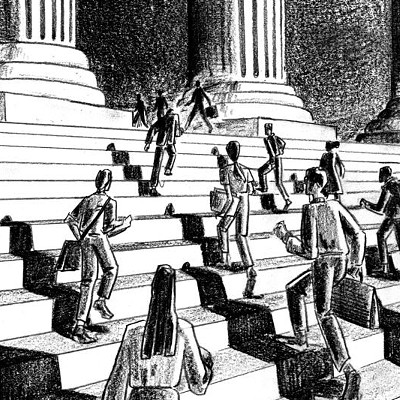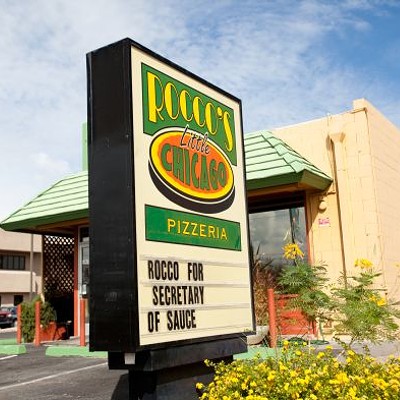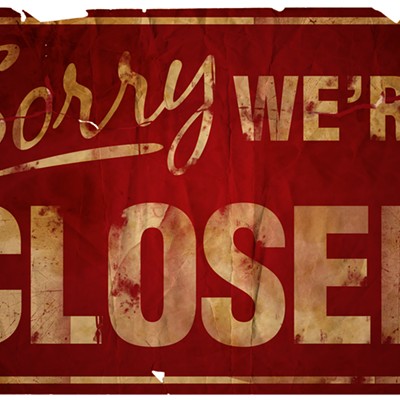"I left graduate school because I desperately wanted help the mainstream live more sustainably. I'd get to work and the other grad students couldn't comprehend the fact that I was riding my bike everyday when I had a car," Moore says.
Moore, 31, now free-lances as a permaculture specialist, photovoltaics (solar) installer and an outdoor educator for Outward Bound. He owns his own home, complete with a composting toilet and outdoor shower, and has structured his life to not have debt. He says the underlying impetus for him does not come out of judgment towards the mainstream, but to offer it something he identifies as necessary and useful.
"Many people never think about the impact their actions have on the planet," Moore says. "For anyone who steps out the box and challenges that, it can be hard. Hopefully, what other people see in me will eventually boost their own sense of committing to their values."
In a culture where the very essence of our lives has increasingly centered on work, most of us rarely have time to think about creating something different. We may champion those like Moore who opt for voluntary simplicity and generate a living in non-traditional ways; yet agreeing to give up material comforts, a predictable income and benefits package doesn't seem to come easily in these precarious economic times.
Dee Frame Hourigan, 49-year-old artist, wife and mother of two teen-agers, sees free-lancing as an opportunity to build relationships and not waste her life doing something she doesn't want to do, despite having gone to college and received a degree.
"I have a B.A. in speech therapy with a minor in photography. When I became a mother, I realized it was the most difficult and rewarding job in my life, although there was no monetary reward. Yet I still needed income. I knew I wanted to be with people and the creative side of me insisted on not being locked in a cubicle somewhere."
Through friendships and word of mouth, Hourigan created work three days a week as a studio assistant for Daniel Snyder Photography and at other times provides private home care for five widowed women ages 70 to 99 whom she says have become part of her family. Her schedule is flexible enough to spend time with her husband and kids, pursue her art and volunteer. She arranged to have Snyder contribute to her IRA and health insurance instead of accepting a bonus.
Lee Shainen, who is a Yoga of Golf instructor, adjunct teacher at Pima Community College, writer for Madden Publishing, consultant and handyman, says he would not recommend it to anyone. Yet he also can't imagine living any other way.
"If someone asked me the best way to grow a life and preserve a self, I'd say work for yourself or better yet, free-lance and avoid the headache of a business," Shainen says.
Shainen has found being responsible has given him all kinds of leverage and opportunity. Knowing the things that are available is part of the game. For the past 31 years he has been able to pursue his passions, determine his own schedule and has the option to say 'no' to anything that infringes on his boundaries.
"Quality of life is how one lives today," says Shainen. "It's not about future goals. People have this belief that they can make their money and then one day have a life. So they stop feeding their souls and instead feed their IRA's. But there is no pawn shop for the soul, you can't go back and reclaim it. Our choices along the way matter."












